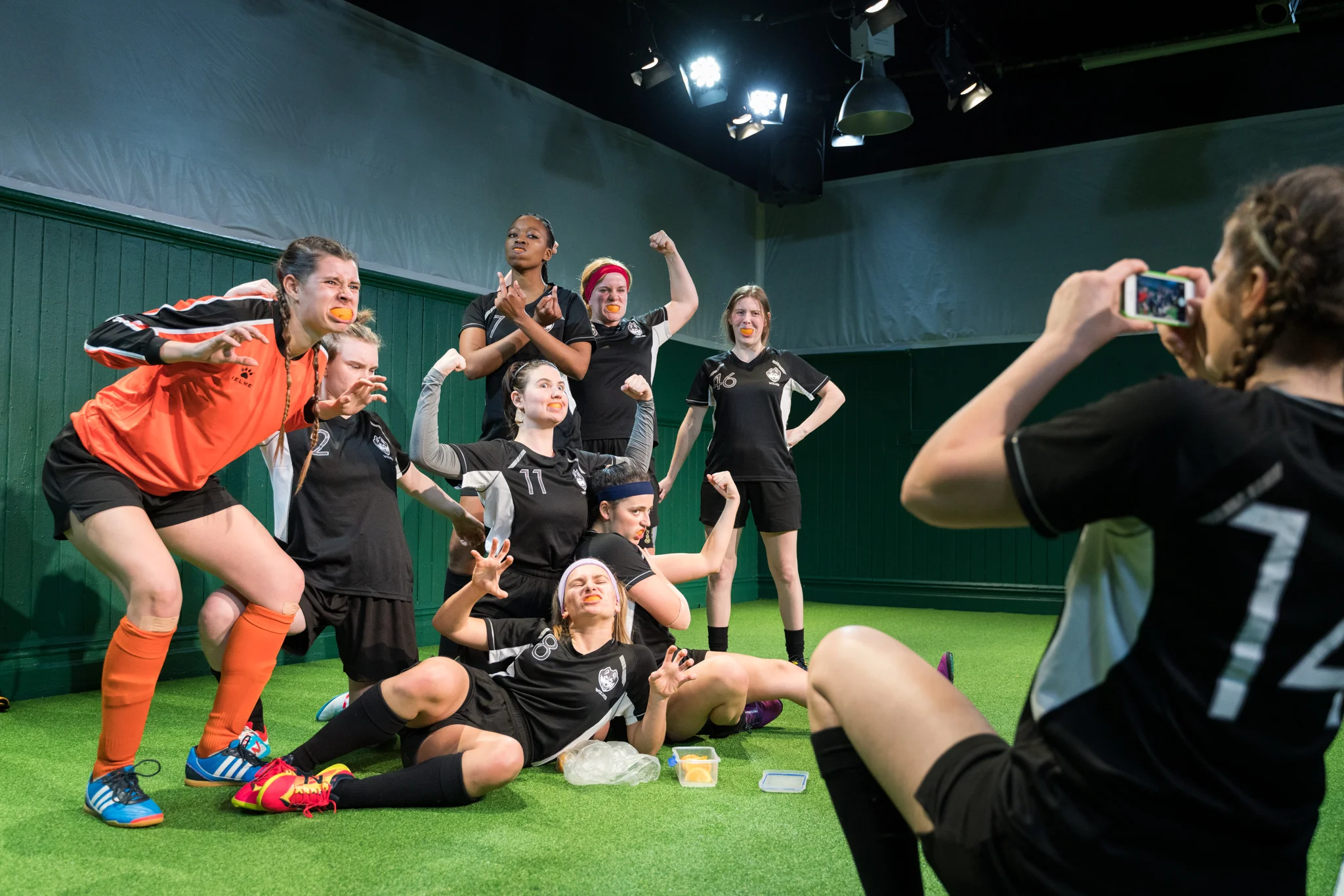Theatre Review: The Hyped, Hypnotising Hypatia
From the moment you enter Hypatia (pronounced hi-pay-sha), you are immersed. The play starts when you take your first step into the room. The ambient, ethereal live score played by Michael Biagioni ets up the sublime backdrop, complimenting the tableau that audiences are immediately confronted with. From the chalkboard floor to the bloodied sailcloth ceiling, Hypatia uses the suffering of the past to elucidate the plights of the present.
Presented by The Open Lid Ensemble, Hypatia is the tale of a great mathematician, astronomer, academic, educator and woman: Hypatia (played by Kat Shaw). It is the story of tragedy, a memoir to persistence, and an account of suffering. ‘In a society where “Nevertheless, she persisted,” is a feminist battle cry and periods of political upheaval can be defined by a hashtag,’ this play serves to remind us that there were times where progress was heresy, and that the fight for equality, for recognition and for impartiality was more than 140 characters and a tap away.
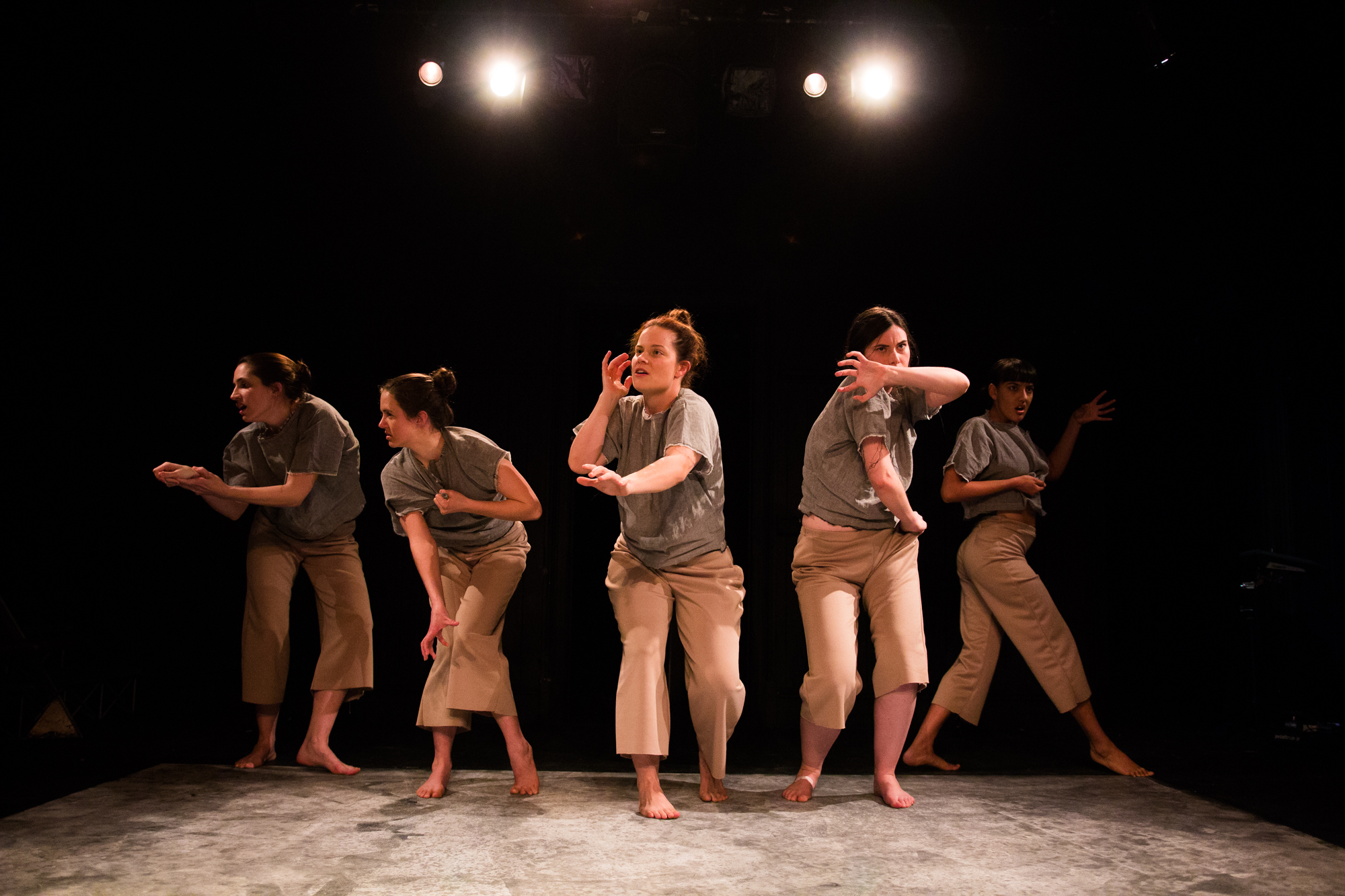
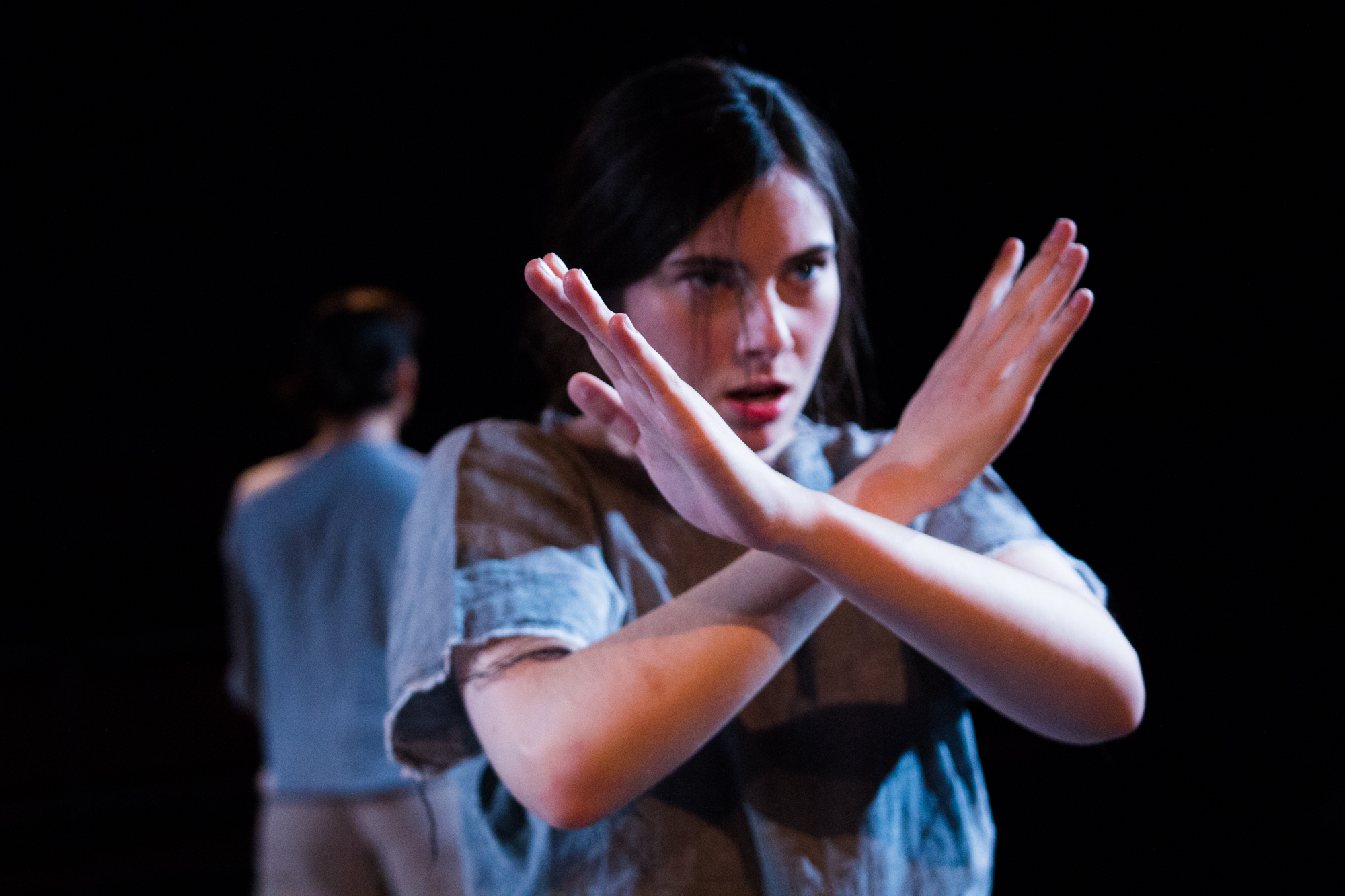
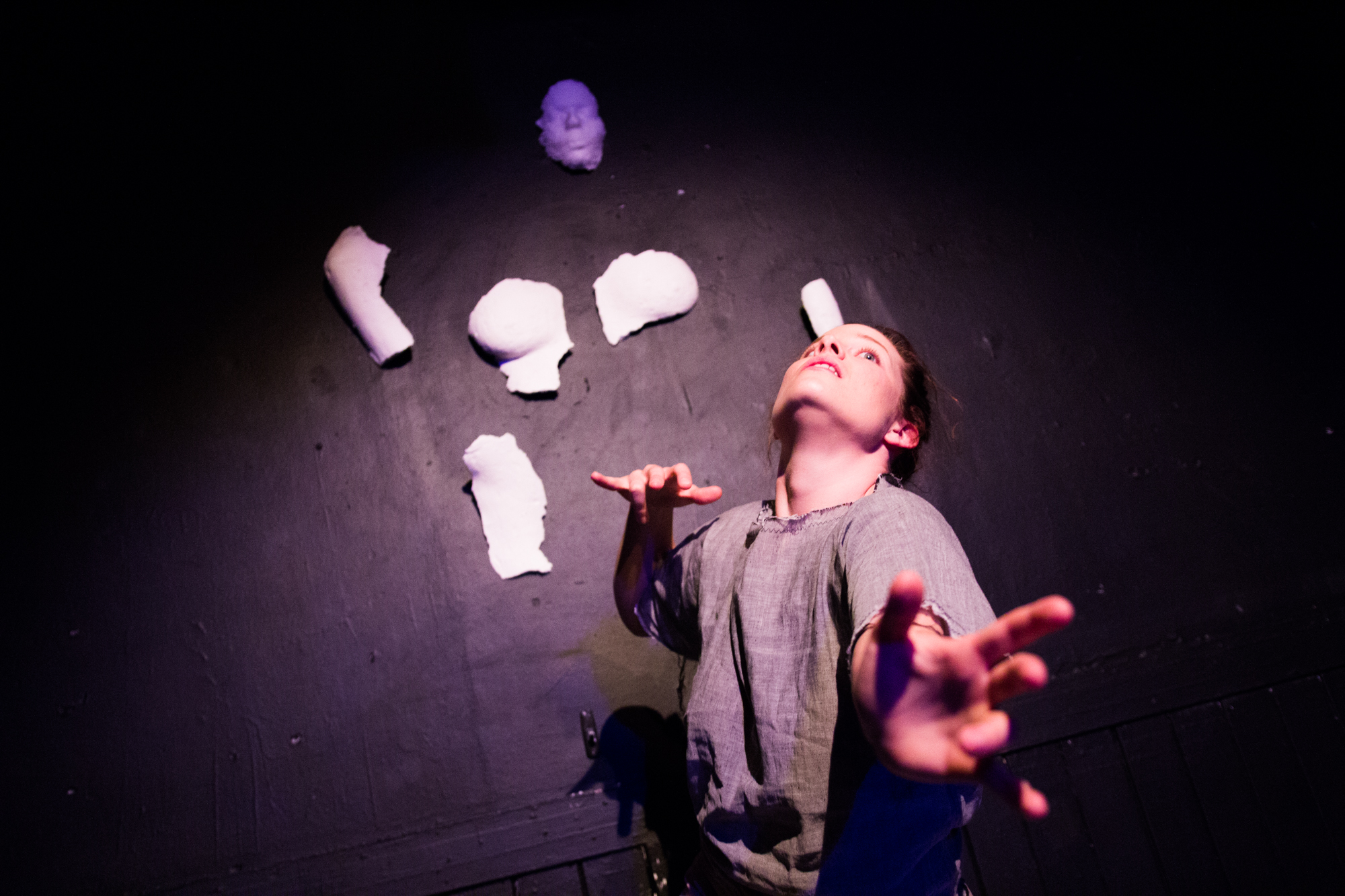
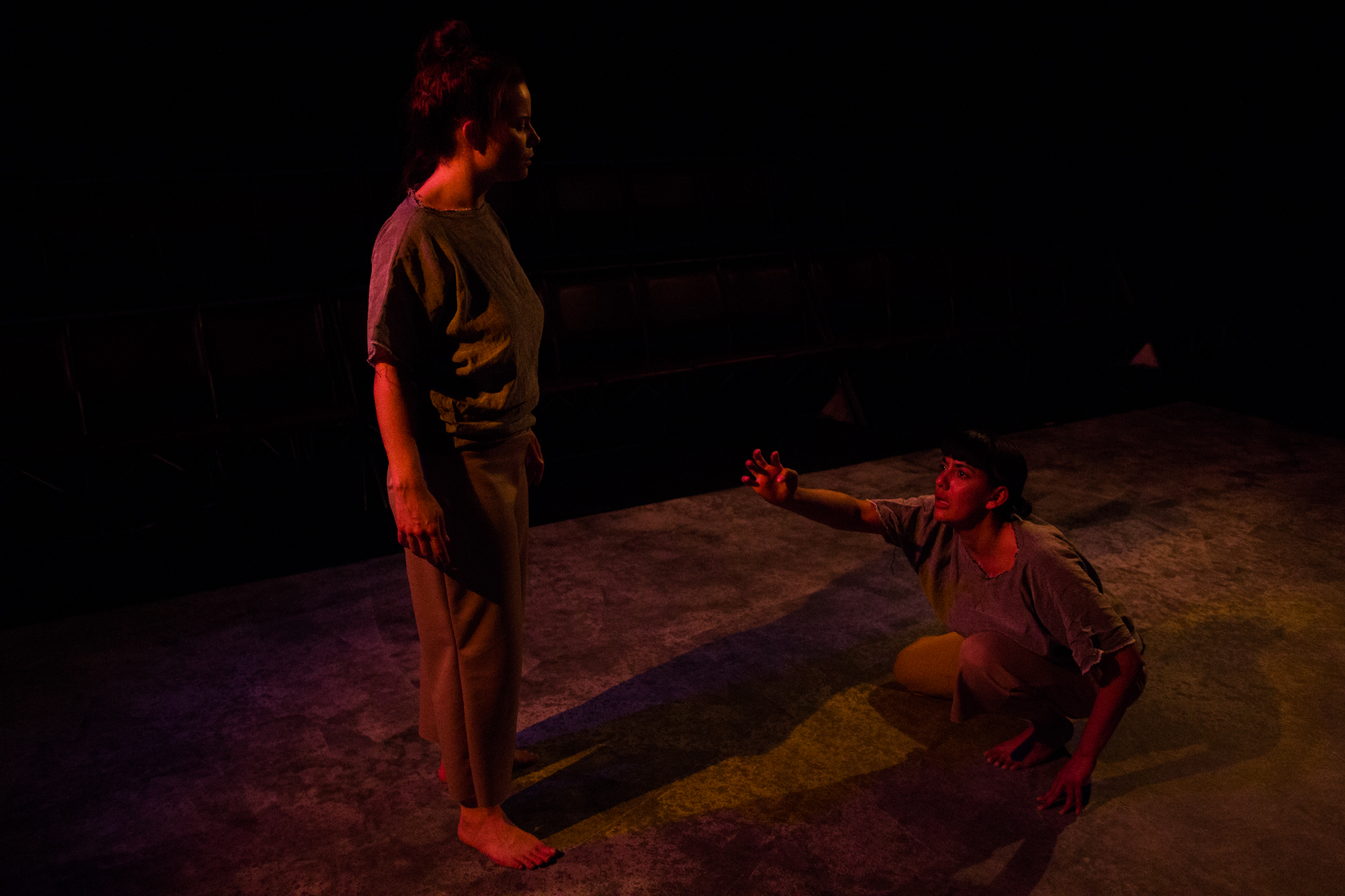
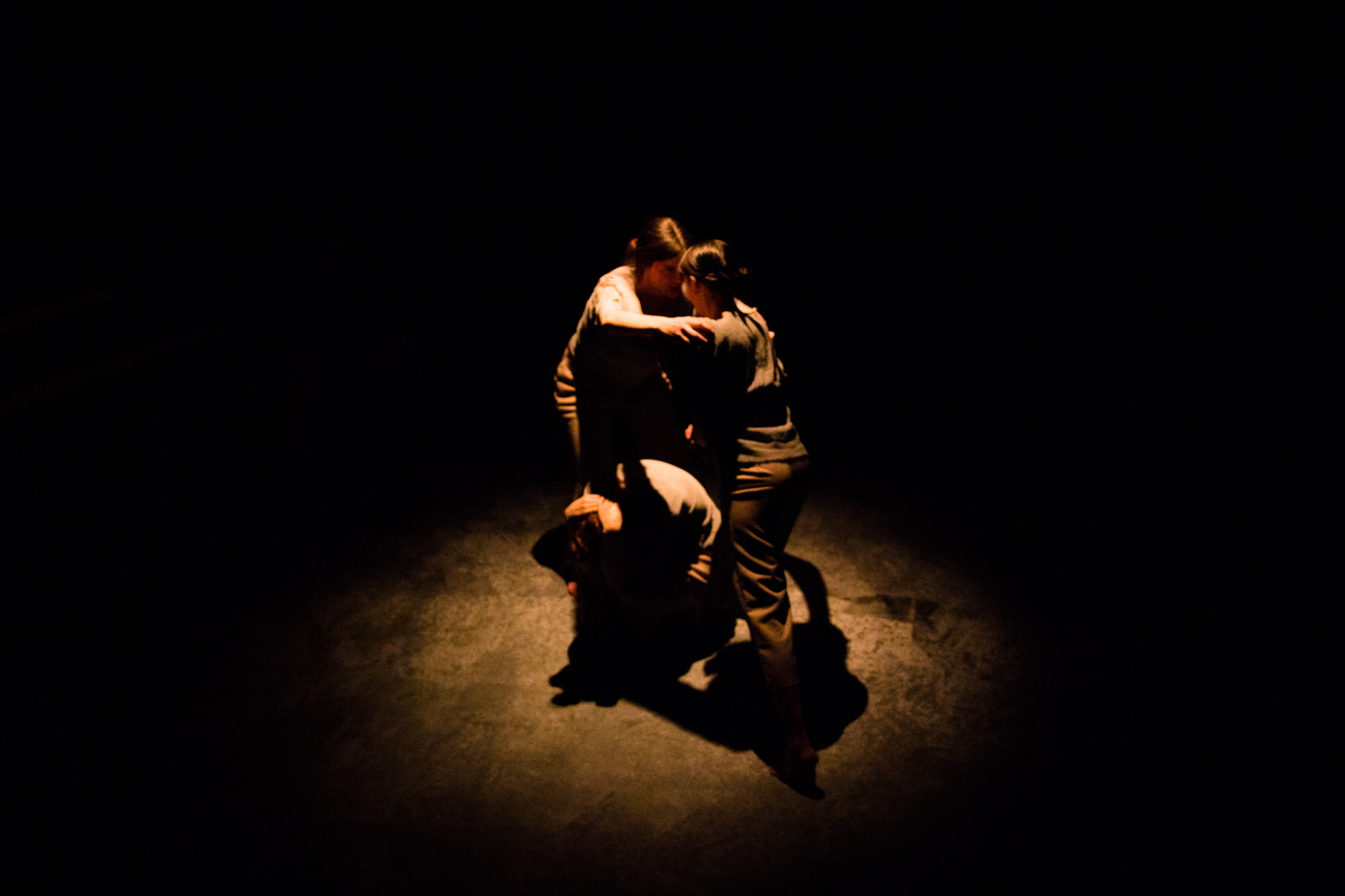
(Photos by Marshall Stay)
Perhaps what was most memorable about The Open Lid Ensemble’s Hypatia was the constant feeling of heart-pounding anticipation. Switching from action, to chorus, to monologue, to dance and back again, there was never a reprise for you to just breathe. They roped you in and made sure that you were watching Hypatia as she struggled to be recognised as more than just a woman, but as an academic. She was ready, and willing, to die as herself rather than to live as someone else.
The play itself is an amalgamation of styles, taking the powerful elements of Greek theatre and the graceful, delicate aspects of the Japanese dance style Butoh in order to convey to audiences tragedy and pain (this medley was so powerful it managed to move an audience member to tears). With the majority of the play existing without props, the world was created through the subtlety of movement. In addition to the already-intimate setting of the Blue Room Theatre, it was clear that the performers, musician and technician had worked hard to develop this piece. Every line, every note (that was, nonetheless, played live), and every cue was so clean and so precise that you had no choice but to be engaged.
Hypatia as a prime example of how art can still be relevant, even if it seems like it is so far removed from the now-ness of today. With its strong views of not only feminism, where “Equality is not the same as the disempowerment of men,” but of ideals that state that “It takes more than not being bad to be good,” here is no doubt that Hypatia is a culture shock, never sugar coating the hardships that may stand in the way of progress.






